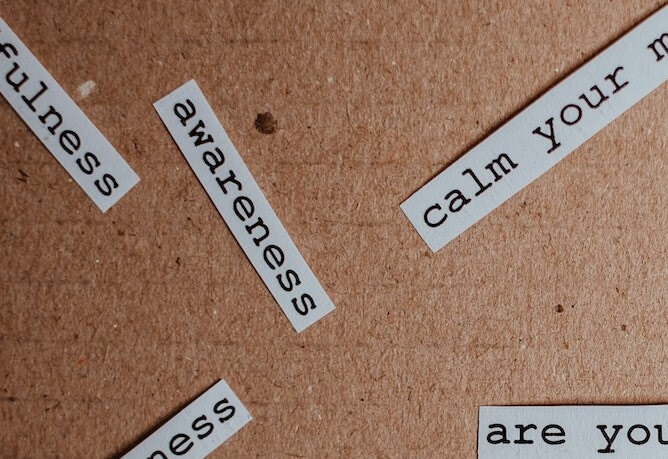Self-Awareness: What It Is, Examples and Guidelines
Personal development and wellness begins with awareness — of oneself and of others.
- What is Self-Awareness?
- Example of the Importance of Self-Awareness
- Test – How Self-Aware Are You?
- How to Develop More Self-Awareness
Also consider
So What is Self-Awareness?
“It’s about paying attention. It’s the details you pick up from your perception of the world. It’s your consciousness actively gathering and processing information from your environment. It’s how you experience life.” — Stephen Warley in his article: What Is Self-Awareness?
Here are more perspectives on what self-awareness is.
- Self-Awareness (defined)
- The Value of Self-Awareness
- The Three Levels of Self-Awareness
- 10 Benefits Of Self-Awareness That Everyone Should Experience
- Examples Of Why Self-Awareness Is Important
- Why Self-Awareness is Vital to Leadership
- Why Self-Awareness Is Your Greatest Asset
Example of the Importance of Self-Awareness
Expanding awareness
By Tom Roy
A series of surprises.
“I’m really disappointed in Mary’s performance. I may have to let her go. It’s sad. She was clearly the best candidate for the job when we recruited her last year.” But Bill was hard pressed to give his executive coach one concrete example of her sub-par performance. Asked why he had changed his mind about Mary, he suggested, “Well, in important meetings she sprawls in her chair, with her arms and legs all stretched out. It’s unprofessional.”
Bill was asked to mimic Mary’s posture, then describe what HE felt. He reset, thought a moment and frowned, puzzled. “Uh, very relaxed, comfortable, sort of opened up!” And how would he approach a problem if he were sitting like that? To his evident surprise, he blurted out, “Differently. Kind of curious, no holds barred.” Keeping this in mind in the coming months as he assessed Mary’s performance, Bill began to recognize that her results were in fact outstanding. Her next performance appraisal put her at the top of Bill’s tea m.
Internal processes:
Somatic: Bill, above, almost made a bad personnel decision by misinterpreting Mary’s body language. And in mimicking her posture, he learned he learned he could change his own awareness. Our mind and body are tightly integrated.
Emotional: the Greeks and Descartes tried to separate rational and emotional thought. But research over the past twenty years has shown that they are tightly linked and you ignore this at your peril. Many of our memories and schema are steeped in strong but unconscious emotions.
Thinking, deciding, doing: much, probably most, of our mental life is unconscious; sometimes this is useful, sometimes it is toxic; but unless we are aware of and manage our awareness of these states, our decisions and behaviors may be more random than intentional.
Creative: our brain creates models (schema) in part to husband limited energy. We run our brain on about 40 watts, like a dim light bulb, much less than a typical PC. So many thought patterns are learned, then shifted into unconscious and more efficient memory. Trying to be creative runs against this default mode and requires effort and practice.
These can either distort or improve key behaviors. Self-awareness is the first step towards enhancing in using them to enhance how we create and lead the following
Test – How Self-Aware Are You?
Take this short on-line test: Self-Awareness
Here is another self-awareness test: Level of Awareness Tests
So how self-aware are you? The articles in the following topic include suggestions for becoming more self-aware.
How to Develop More Self-Awareness?
- The True Meaning of Self-Awareness (& How to Tell If You’re Actually Self-Aware)
- What is Self-Awareness and Why is it Important? [+5 Ways to Increase It]
- What Is Self-Awareness and How Do You Get It?
- What Is Self-Awareness? (and 8 Ways to Become More Self Aware)
- Developing Awareness
Also consider
- Assertiveness
- Attitude
- Authenticity
- Bullying (Addressing)
- Burnout
- Cynicism
- Emotional Intelligence
- Job Satisfaction
- Motivating and Inspiring Yourself
- Personal Development
- Personal Productivity
- Physical Fitness
- Self-Confidence
- Stress Management
- Diversity and Inclusion
- Work-Life Balance
- Workaholism
Learn More in the Library’s Blogs Related to Awareness and Self-Awareness
In addition to the articles on this current page, see the following blogs which have posts related to Awareness and Self-Awareness. Scan down the blog’s page to see various posts. Also see the section “Recent Blog Posts” in the sidebar of the blog or click on “next” near the bottom of a post in the blog.
For the Category of Personal Wellness:
To round out your knowledge of this Library topic, you may want to review some related topics, available from the link below. Each of the related topics includes free, online resources.
Also, scan the Recommended Books listed below. They have been selected for their relevance and highly practical nature.

